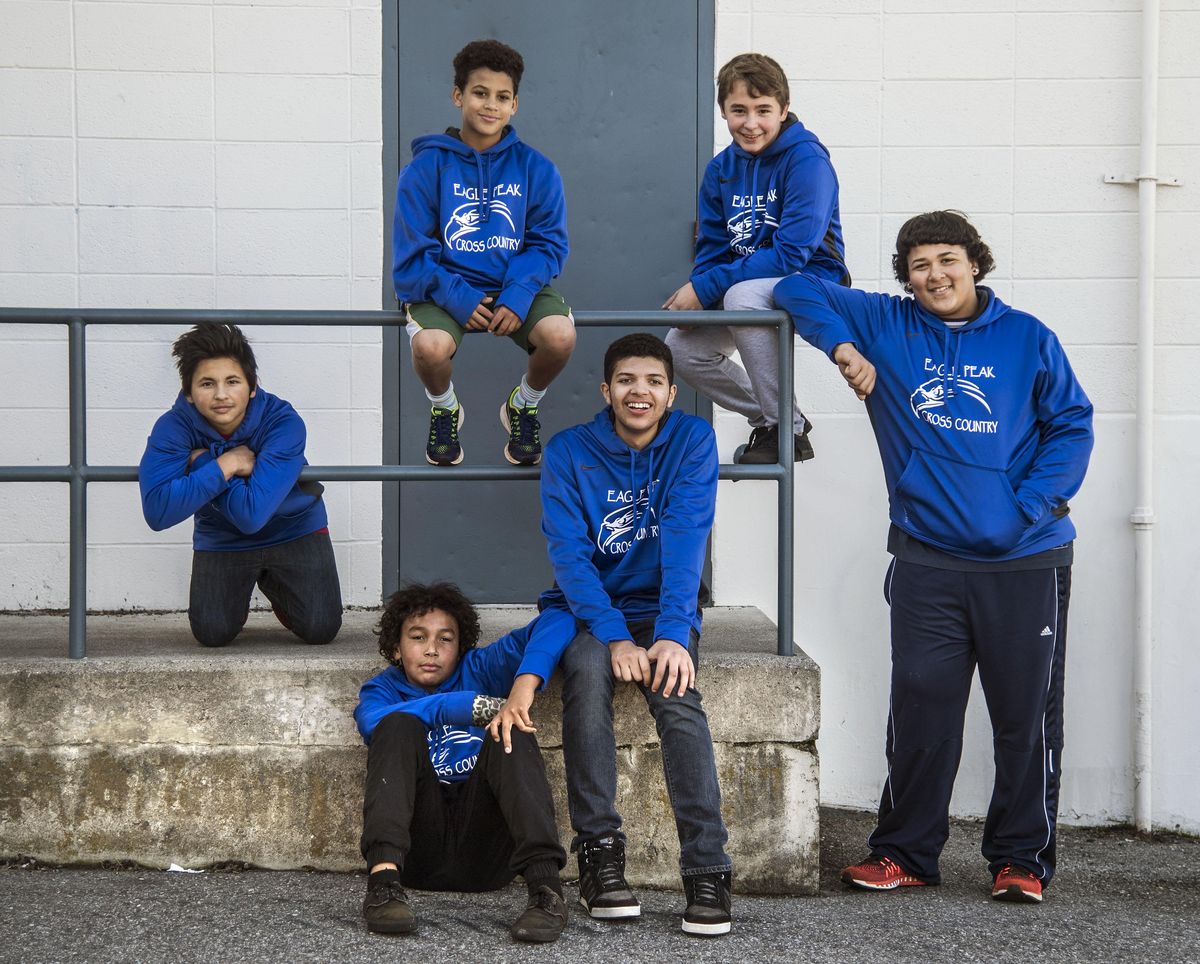Eagle Peak alternative school launched cross-country team to give kids an emotional outlet and activity

He left Garry Middle School in shame, kicked out for his “tone” and “attitude.”
Last month he returned with pride.
Quincy Hofer was part of the new cross country team at Eagle Peak School, a program for students from across the region who have behavioral and emotional problems. The Eagle Peak team was at Garry for a cross country meet.
A quiet 13-year-old, Hofer reflected on his trouble at Garry. “When I got suspended that was my last chance to be in an actual public school,” he said.
One of Hofer’s coaches, Courtney Kerr-Smith, said seeing Hofer return to Garry for the meet was a delight.
“It was really neat to see the support he had from his fellow students,” she said. “You get to see a different side.”
Eagle Peak Principal Melinda Keberle said the school’s 100 students “don’t have as many opportunities and activities as neighborhood schools. We want to give them opportunities.”
In an effort to do just that, head cross country coach and teacher Tim O’Halloran applied for a $2,000 grant from Donors Choose, an organization that allows people to give directly to public school classroom projects. That money was used to buy students tennis shoes and running apparel from Fleet Feet, which sold the gear for a discounted price.
About 13 students practiced on the team, and seven competed in cross country meets. At the end of the year all the students on the team will be allowed to keep their running shoes, O’Halloran said.
“The biggest thing I think I noticed was that the kids had no sense of identity or sense of belonging,” he said. “By going back to their neighborhood schools … and to see them interact with their peers, to see them interact positively, just reinforces their sense of belonging.”
O’Halloran, who teaches language arts and social studies, said getting the team started was a challenge. Because Eagle Peak isn’t a member of the Washington Interscholastic Activities Association, it couldn’t have its own team.
The solution came when Sacajawea Middle School agreed to allow all the students to race for their school.
Once the team started practicing, O’Halloran said he saw changes in student behavior and buy-in. Academic performance went up, as did attendance. Suspensions went down. While he can’t say definitively that it was due to being on the cross country team, he thinks it’s connected.
“Since the season ended, at least my elementary kids have struggled greatly,” he said.
Lyric Langley, 13, experienced the benefits of the program firsthand. The eighth-grader has been at Eagle Peak since April of last year. Like Hofer, she was sent there because she had attitude problems and skipped classes.
Langley said she has anger issues, and running helps her process the anger without blowing up.
“We use the cross country program as a way to help us, not physically, but mentally,” she said. “I was here last year. We didn’t have any sports or any programs.”
The school serves some of the district’s most at-risk children, said Keberle, the principal. That has its difficulties and rewards for the 30 staff members.
“If you don’t have your heart there, and you’re not all in, you don’t really last at Eagle Peak,” she said of her staff. “Just because it takes so much emotional energy. But there is also so much emotional payoff.”
Students are referred to Eagle Peak by their neighborhood schools, she said. The students then work to get back to their home school. The process for each student is different; some stay at Eagle Peak for only a month or two, others are there for years.
Although the cross country season is over, the students on the team continue to practice during the school day.
“To be honest with you, these kids are disenfranchised,” O’Halloran said. “They come here and they lose their friends … and they are dropped off with basically nothing.”